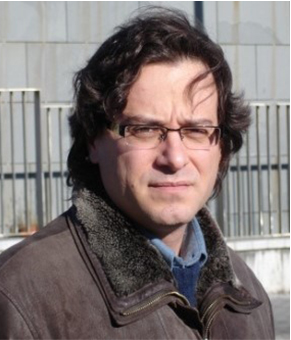
Gherhardt Ribatski
São Carlos School of Engineering, University of São Paulo (USP), Brazil
Dr. Gherhardt Ribatski is Full Professor of Multiphase Flow and Heat Transfer at the São Carlos School of Engineering, University of São Paulo (USP), Brazil. He received his BS, MSc. and Doctoral Degrees in Mechanical Engineering from the University of São Paulo. He held postdoctoral positions at the University of Illinois at Urbana–Champaign, Swiss Federal Institute of Technology in Lausanne (EPFL) and Universidade da Coruña. His research interests cover various areas of multiphase flows and heat transfer.
Prof. Ribatski is member of the Congress Committee of International Union of Theoretical and Applied Mechanics (IUTAM) and Brazilian Delegate to the Assembly for International Heat Transfer Conferences. He is member of Assembly of World Conferences on Experimental Heat Transfer, Fluid Mechanics and Thermodynamics, Virtual Institute of Two-Phase Flow and Heat Transfer, Scientific Council of the International Centre for Heat and Mass Transfer (ICHMT). He was Director Secretary (2016-2017) and is member and President of the Brazilian Society of Mechanical Sciences and Engineering (2018-2021). He has served as coordinator of the CAPES (Coordination for the Improvement of Higher Education Personnel- Brazil) committee for evaluation of graduate programs in the areas of Mechanical, Mechatronics, Naval and Ocean, Aeronautical, Industrial and Petroleum Engineering. He is member of the area panel of Engineering of FAPESP (São Paulo Research Foundation – Brazil). Prof. Ribatski is subject editor of Applied Thermal Engineering, editor of Experimental Thermal and Fluid Sciences and member of the Editorial Advisory Board of International Journal of Multiphase Flow.
He has presented 11 keynote lectures and taken part in the scientific committee of several International Conferences. Dr. Ribatski has over 100 refereed journal publications, 6 book chapters, 1 book and over 120 refereed papers in conferences.
Title:Liquid film characteristics during horizontal annular flows for in-tube evaporation and condensation
Abstract: Liquid film thickness (LFT) and its interfacial waviness play important roles on pressure drop, heat transfer and dryout behaviors during annular flows. In this lecture, experimental results for the transient behavior of the liquid film thickness are presented and discussed. The experimental database comprises film thickness measurements obtained for convective condensation and flow boiling of hydrocarbons and their zeotropic mixtures. Experiments were performed for R600a, R290, R1270, R600a/R290 (70/30 molar fraction) and R600a/R1270 (75/25 molar fraction) in a horizontal, smooth tube with internal diameter of 9.43mm. The mass velocities ranged from 50 to 300kg/m2s, vapor qualities from 0 to 1, heat fluxes from 5 to 75kW/m2, for saturation temperatures of 35°C (condensation) and 5°C (flow boiling). It was observed that the transitional vapor quality between gravitational- and shear-driven condensation is determined by a peak in the base liquid film thickness at the top of the tube. At mass velocities higher than 100kg/m2s, this transition is sharp, independent of the fluid, while at lower mass velocities, a smoother transition is noted for R290 and R1270 with LFT increasing smoothly with vapor quality, prior to the peak. Intermittent dryout and surface rewetting occurring in a cyclic manner was characterized during the flow boiling tests. A thick liquid film front was responsible for the rewetting process. Then, after a smooth decay, the LFT remains fairly constant, except for some small amplitude oscillations. Then, another sharp increase in the LFT occurs, followed by a smooth decay in the LFT until the wall dryout.